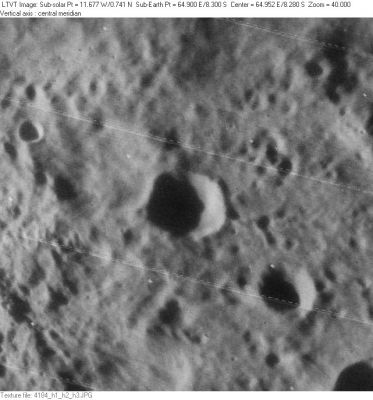Difference between revisions of "Somerville"
| Line 23: | Line 23: | ||
* [http://en.wikipedia.org/wiki/Mary_Fairfax_Somerville Mary Fairfax Somerville] (December 26, 1780 - November 28, 1872) was a Scottish science writer and polymath, at a time when women's participation in science was discouraged. She studied mathematics and astronomy, and became the second woman scientist to receive recognition in the United Kingdom after Caroline Herschel. Having been requested by Lord Brougham to translate for the Society for the Diffusion of Useful Knowledge the Mécanique Céleste of Laplace, she greatly popularized its form, and its publication in 1831, under the title of The Mechanism of the Heavens, at once made her famous. Her other works are the Connection of the Physical Sciences (1834), Physical Geography (1848), and Molecular and Microscopic Science (1869). In 1835, she and Caroline Herschel became the first women members of the Royal Astronomical Society. | * [http://en.wikipedia.org/wiki/Mary_Fairfax_Somerville Mary Fairfax Somerville] (December 26, 1780 - November 28, 1872) was a Scottish science writer and polymath, at a time when women's participation in science was discouraged. She studied mathematics and astronomy, and became the second woman scientist to receive recognition in the United Kingdom after Caroline Herschel. Having been requested by Lord Brougham to translate for the Society for the Diffusion of Useful Knowledge the Mécanique Céleste of Laplace, she greatly popularized its form, and its publication in 1831, under the title of The Mechanism of the Heavens, at once made her famous. Her other works are the Connection of the Physical Sciences (1834), Physical Geography (1848), and Molecular and Microscopic Science (1869). In 1835, she and Caroline Herschel became the first women members of the Royal Astronomical Society. | ||
| − | * This replacement name for a formerly [[lettered%20crater|lettered crater]] was introduced on [http://www.lpi.usra.edu/resources/mapcatalog/LTO/lto80c1_1/ LTO-80C1] (for which it served as the chart title). <span class="membersnap">- | + | * This replacement name for a formerly [[lettered%20crater|lettered crater]] was introduced on [http://www.lpi.usra.edu/resources/mapcatalog/LTO/lto80c1_1/ LTO-80C1] (for which it served as the chart title). <span class="membersnap">- JimMosher</span> |
* List of features named for [[Nomenclature-Women|women]]. | * List of features named for [[Nomenclature-Women|women]]. | ||
* '''Somerville''' (or '''Mrs. Somerville''') seems to have been John Lee's name for a conspicuous crater somewhere northeast of '''Aristoteles'''. <span class="membersnap">- DannyCaes <small>Oct 11, 2015</small></span> | * '''Somerville''' (or '''Mrs. Somerville''') seems to have been John Lee's name for a conspicuous crater somewhere northeast of '''Aristoteles'''. <span class="membersnap">- DannyCaes <small>Oct 11, 2015</small></span> | ||
Revision as of 20:40, 16 April 2018
Contents
Somerville
(formerly Langrenus J)
|
Lat: 8.3°S, Long: 64.9°E, Diam: 15 km, Depth: 3.08 km, Rükl: 49 |
LO-IV-184H Somerville is in the center. The faint 23-km crater touching it on the northwest is Langrenus H with little Langrenus R beyond that. To the southeast of Somerville is 12-km Langrenus N and a tiny glimpse of the shadow-casting rim of Langrenus M in the extreme lower right.
Images
LPOD Photo Gallery Lunar Orbiter Images Apollo Images
- Note: all orbital Apollo photographs of Somerville (Langrenus J) are (or should be) online in the short series Langrenus, east of because Langrenus J's location is a little bit eastward of Langrenus itself.- DannyCaes Jan 23, 2010
- AS15-P-10093, which is the first frame of Apollo 15's REV 63 - VERTICAL (a series of panoramic ITEK-camera frames) shows crater Somerville just off the screen's right margin. To see the crater, one should scroll a little bit to the right (Somerville is the crater with the high-albedo spot at the eastern part of its floor, and dark radial streak at the western part of its inner slopes).
- AS15-P-10088 shows most of Somerville, while AS15-P-10086 only shows its eastern half with the bright spot on its floor.
- Apollo 16's AS16-P-4419 shows Somerville illuminated by high sun. On this frame it is not necessary to scroll to the right because it (Somerville) is already visible at centre of screen.
- Research orbital Apollo photography: Danny Caes
Maps
(LAC zone 80C1) LAC map Geologic map LTO map
Description
Description: Wikipedia
Additional Information
Depth data from Kurt Fisher database
- Westfall, 2000: 3.08 km
Nomenclature
- Mary Fairfax Somerville (December 26, 1780 - November 28, 1872) was a Scottish science writer and polymath, at a time when women's participation in science was discouraged. She studied mathematics and astronomy, and became the second woman scientist to receive recognition in the United Kingdom after Caroline Herschel. Having been requested by Lord Brougham to translate for the Society for the Diffusion of Useful Knowledge the Mécanique Céleste of Laplace, she greatly popularized its form, and its publication in 1831, under the title of The Mechanism of the Heavens, at once made her famous. Her other works are the Connection of the Physical Sciences (1834), Physical Geography (1848), and Molecular and Microscopic Science (1869). In 1835, she and Caroline Herschel became the first women members of the Royal Astronomical Society.
- This replacement name for a formerly lettered crater was introduced on LTO-80C1 (for which it served as the chart title). - JimMosher
- List of features named for women.
- Somerville (or Mrs. Somerville) seems to have been John Lee's name for a conspicuous crater somewhere northeast of Aristoteles. - DannyCaes Oct 11, 2015
LPOD Articles
Bibliography
